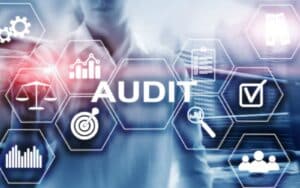Corporate Tax Accountants: Who They Are & What They Do

Discover how corporate tax accountants can save your business money, ensure compliance, and provide strategic tax planning.
Table of Contents
As a business owner, few areas impact your company’s bottom line as significantly as taxation. Every financial decision you make carries tax implications, and navigating the complex landscape of corporate taxation can be overwhelming.
This is where corporate tax accountants become invaluable assets to your business.
Corporate tax accountants are financial professionals who specialize in helping your business meet tax obligations while maximizing tax efficiency within legal boundaries.
They serve as strategic partners who can transform tax management from a burdensome compliance exercise into a powerful business advantage.
This article explains who corporate tax accountants are and the critical value they bring to your business.
Who Are Corporate Tax Accountants?
Educational Background and Qualifications
The corporate tax accountants you’ll entrust with your business’s financial well-being typically possess extensive education and professional credentials. Most hold a Bachelor’s degree in Accounting, Finance, or a related field, providing them with fundamental knowledge of accounting principles and financial reporting relevant to your business.
While some corporate tax accountants hold the Chartered Professional Accountant (CPA) designation, it’s important to understand that this isn’t the only path to tax expertise.
Many highly skilled tax professionals have developed their expertise through years of practical experience, specialized tax training, and ongoing education without pursuing the CPA credential.
The most important consideration is finding someone with proven tax expertise relevant to your business needs, regardless of whether they hold the CPA designation.
What matters most is their actual knowledge of tax codes, their track record of helping businesses like yours, and their ability to apply tax strategies to your specific situation.
Essential Skills and Qualities
When evaluating potential corporate tax accountants for your business, look for these critical skills and qualities:
- Strong analytical and problem-solving abilities: They can analyze your business’s financial information and identify tax opportunities you might otherwise miss.
- Meticulous attention to detail: Even small errors could result in significant tax consequences or penalties for your company.
- Comprehensive understanding of tax laws: They interpret and apply intricate tax codes directly relevant to your business situation.
- Excellent communication skills: They should explain complex tax matters to you and your team in understandable terms.
- Ethical and professional conduct: They work within legal boundaries to optimize your tax position while maintaining the highest standards of integrity.
- Technical proficiency: Modern tax accounting requires familiarity with specialized software and systems that integrate with your business operations.
- Bookkeeping expertise: Ideally, they should also understand bookkeeping principles to ensure your financial records are organized in ways that facilitate tax optimization.
The Value of Combined Tax and Bookkeeping Expertise
One of the most beneficial combinations for your business is finding a corporate tax accountant who also possesses strong bookkeeping knowledge. This dual expertise creates significant advantages:
- Streamlined financial management: When your tax professional understands bookkeeping, they can ensure your day-to-day financial records are structured to maximize tax advantages.
- Year-round tax optimization: Rather than scrambling at tax time, a tax accountant with bookkeeping expertise can implement tax strategies throughout the year.
- Consistent financial organization: They can establish bookkeeping systems that naturally capture all potential deductions and organize expenses in tax-optimal categories.
- Cost efficiency: Combining these services often costs less than hiring separate specialists for each function.
- Reduced errors: When one professional handles both areas, there’s less risk of miscommunication or inconsistencies between your books and tax filings.
Distinction from Other Accounting Roles
As a business owner, it’s important to understand how corporate tax accountants differ from other financial professionals you might employ.
While general accountants manage day-to-day bookkeeping and financial reporting, corporate tax accountants specifically focus on maximizing tax efficiency and ensuring compliance.
Unlike auditors who examine financial statements for accuracy, or management accountants who focus on internal financial guidance, corporate tax accountants concentrate specifically on minimizing your tax burden while maintaining compliance with all relevant regulations.
Their specialized expertise can identify tax-saving opportunities that generalists might miss.
What Do Corporate Tax Accountants Do?
Tax Planning and Strategy
One of the most valuable benefits corporate tax accountants bring to your business is strategic tax planning. These professionals analyze your business operations, structure, and transactions to identify opportunities for legal tax minimization that directly improve your bottom line.
They constantly monitor changes in tax legislation that might affect your company. When tax laws change—as they frequently do—they assess the impact on your business and adapt strategies accordingly, ensuring you’re always positioned for maximum tax advantage.
Before you make major business decisions like expanding operations, acquiring another company, or changing your business structure, corporate tax accountants can evaluate the potential tax implications and recommend optimal approaches.
Tax Compliance
Corporate tax accountants ensure your business meets all tax obligations accurately and on time. They prepare and file various tax returns required for your business, including corporate income tax returns, sales tax reports, payroll tax submissions, and other regulatory filings.
They establish systems and processes tailored to your business to ensure compliance with federal, provincial/state, and local tax laws.
These professionals create tax calendars that track filing deadlines and payment due dates specific to your business operations, helping you avoid costly penalties and interest charges that would otherwise reduce your profits.
When tax authorities conduct audits or make inquiries about your business, corporate tax accountants manage the process on your behalf.
They gather required documentation, respond to questions, and represent your company’s interests during audit proceedings, allowing you to focus on running your business while they handle these potentially stressful situations.
Tax Accounting and Reporting
Corporate tax accountants maintain precise records of your business transactions with tax implications. They document and preserve supporting evidence for deductions, credits, and income calculations that could be crucial in case of an audit.
These professionals prepare tax provisions for your company’s financial statements in accordance with relevant accounting standards.
This involves calculating current and deferred tax assets and liabilities that reflect on your company’s financial position, ensuring you have an accurate picture of your business’s true financial status.
Additionally, they analyze how tax obligations affect your overall financial performance and work with your financial reporting teams to ensure consistency between tax and financial accounting, providing you with reliable information for business decision-making.
Bookkeeping Integration
Corporate tax accountants with bookkeeping expertise offer tremendous value by implementing tax-optimized bookkeeping systems.
They:
- Structure your chart of accounts to naturally capture tax-relevant information
- Establish expense categorization systems that align with tax deduction categories
- Create processes for tracking potentially deductible expenses throughout the year
- Implement documentation systems that support tax positions in case of audit
- Provide regular financial reports that highlight your current tax position
- Identify opportunities for timing income and expenses to minimize tax liability
Through this integrated approach, your business benefits from real-time tax optimization rather than reactive tax preparation. This proactive stance typically results in greater tax savings and fewer last-minute surprises.
Research and Interpretation
When your business faces unique tax situations, corporate tax accountants conduct in-depth research on complex tax issues. They investigate how specific tax regulations apply to unusual transactions or new business models you might be considering.
They interpret tax laws, regulations, and court decisions to determine their impact on your specific business operations. This often involves analyzing legislative intent, reviewing case precedents, and consulting authoritative tax resources to ensure you receive the most advantageous treatment possible.
Based on their research and interpretation, they provide guidance on applying tax rules to your specific business situations, helping you navigate uncertain or ambiguous areas of tax law with confidence.
Communication and Collaboration
Effective corporate tax accountants translate complex tax concepts into understandable terms for you and your management team. They explain how tax considerations affect your business decisions in practical, actionable ways.
They also collaborate with your external advisors, including independent auditors who review tax provisions and external tax specialists who may provide additional expertise for particularly complex matters related to your business.
Need a corporate tax accountant for your growing busniess?
Discover the all-in-one packages Sansar Solutions has to offer businesses like yours, no matter what situation you may be facing with the CRA.
The Importance of Corporate Tax Accountants to Your Business
The Importance of Corporate Tax Accountants to Your Business
Professional accountants help businesses maintain accurate records, reducing the risk of costly errors and penalties.
- Minimize mistakes in bookkeeping, tax filings, and financial reporting
- Stay compliant with CRA regulations and industry-specific tax requirements
- Keep up with changing tax laws and accounting standards
By ensuring financial accuracy, businesses can avoid audits, fines, and regulatory issues that could otherwise disrupt operations.
Optimizing Tax Savings and Improving Profitability
Through strategic tax planning, corporate tax accountants identify legitimate opportunities to reduce your tax liabilities. These savings flow directly to your bottom line, enhancing profitability and freeing up resources you can reinvest in business growth, innovation, or increased returns.
For example, they might identify business expenditures that qualify for tax credits, allowable deductions you’ve overlooked, or advantageous timing for making certain business purchases, all of which can substantially reduce your tax burden.
Navigating Complex Tax Landscapes
If your business operates across multiple jurisdictions, you face the challenge of complying with different tax rules and regulations in each location.
Corporate tax accountants help you navigate these complex tax landscapes, managing the interactions between different tax regimes and helping you avoid double taxation issues that could unnecessarily increase your costs.
Supporting Business Growth and Decision-Making
Almost every significant business decision you make has tax implications.
Where should you locate your next facility?
How should you structure compensation for key executives?
Should you lease or purchase equipment?
Corporate tax accountants provide critical input that shapes your strategic planning and supports sustainable business growth by factoring tax consequences into your decision-making process.
Finding the Right Corporate Tax Accountant for Your Business
Looking Beyond Credentials to Experience
While professional designations like the CPA can indicate a certain level of training, they don’t necessarily guarantee the specific tax expertise your business needs. When evaluating candidates, focus on:
- Practical experience with businesses similar to yours: Have they worked with companies in your industry and of similar size?
- Demonstrable tax savings: Can they provide examples of how they’ve helped businesses reduce tax burdens legitimately?
- Knowledge of current tax laws: How do they stay updated on changing regulations?
- Bookkeeping integration skills: Do they understand how to structure your everyday financial processes to support tax optimization?
Often, tax professionals who have built their expertise through years of practical experience specifically focused on tax matters may provide more value than those with broader accounting credentials but less specialized tax knowledge.
Evaluating Industry Knowledge
When selecting corporate tax accountants, prioritize professionals with experience in your specific industry. Tax rules often have industry-specific applications, and accountants familiar with your sector will better understand the unique tax opportunities and challenges your business faces.
Assessment of Service Scope
Consider what specific tax services your business needs. Do you require ongoing tax planning, quarterly tax provision preparation, annual compliance work, or all of these? Clearly defining your requirements helps ensure you engage professionals who can deliver the exact services your business needs.
Look specifically for professionals who offer integrated bookkeeping and tax services if you want year-round tax optimization rather than just annual tax preparation.
Communication Style and Accessibility
The best corporate tax accountants for your business will communicate clearly and be readily accessible when you need them. During initial consultations, assess whether they explain complex concepts in ways you understand and their responsiveness to your questions.
The Return on Investment: What Good Tax Accountants Deliver
Direct Cost Savings
The most measurable benefit of working with skilled corporate tax accountants is direct tax savings. Through legitimate deductions, credits, and strategic timing of income and expenses, tax professionals often save businesses many times their fees in reduced tax liabilities.
Risk Mitigation
Corporate tax accountants significantly reduce your exposure to compliance risks. The cost of tax penalties, interest, and potential legal fees from improper tax management can far exceed the investment in professional tax services.
Strategic Value
Beyond compliance and direct savings, corporate tax accountants provide strategic value by helping structure your business operations, transactions, and investments in tax-efficient ways that contribute to long-term financial health and competitive advantage.
Time Freedom
Working with tax professionals frees you and your team to focus on core business activities instead of navigating complex tax requirements. This time freedom allows you to concentrate on growth, innovation, and delivering value to your customers.
Are Corporate Tax Accountants Worth The Money?
For business owners like you, corporate tax accountants represent more than just technical specialists—they are strategic partners who can significantly impact your company’s financial performance and growth potential.
Their expertise extends far beyond basic tax compliance to encompass proactive planning that identifies opportunities for legitimate tax savings while mitigating compliance risks.
When selecting a corporate tax accountant, focus on finding someone with the specific tax expertise your business needs, preferably combined with strong bookkeeping knowledge, rather than simply looking for particular credentials.
The most valuable tax professionals are those who can integrate tax optimization into your daily financial operations, not just provide year-end tax preparation.
In today’s increasingly complex tax environment, having skilled corporate tax expertise at your disposal isn’t merely a luxury—it’s a competitive necessity that can mean the difference between merely surviving and truly thriving in the marketplace.
By choosing a professional with both tax knowledge and bookkeeping expertise, you’ll position your business for maximum financial efficiency and tax advantage throughout the year.
Common questions when about business accounting
A corporate tax accountant is a financial professional who specializes in business taxation. They help companies comply with tax laws while identifying legitimate strategies to minimize tax liabilities and support business decision-making through tax-efficient planning.
While general accountants focus on overall financial record-keeping and reporting, corporate tax accountants specialize specifically in tax matters. They have deeper knowledge of tax codes, regulations, and planning strategies that apply to businesses.
Yes, they serve different functions. Bookkeepers maintain your day-to-day financial records, while corporate tax accountants use those records to prepare tax returns, identify tax-saving opportunities, and provide strategic tax advice. Ideally, having a tax accountant who also understands bookkeeping provides the best integrated approach.
Businesses of all sizes can benefit from tax expertise, though the arrangement may differ. Small businesses might work with a tax professional on a consulting basis, while larger companies may have in-house tax departments. As your business grows and tax situations become more complex, the value of specialized tax expertise increases.
No, a corporate tax accountant doesn’t necessarily need to be a CPA (Chartered Professional Accountant). While the CPA designation indicates a certain level of accounting education and testing, many highly skilled tax professionals have developed their expertise through specialized tax training, years of practical experience, and ongoing education without pursuing the CPA credential.
Share
Subscribe For Business Tax Tips & Insights
Get the update on business news, tax deadlines, and new insights to stay on top of your taxes.
Read more articles by Sansar Solutions

Corporate Tax Audit: What to Do Now
Facing the troubles of a potential corporate tax audit with the CRA. Don’t worry, read this to understand your next steps.

Hiring an Accountant for Your Small Business
Hiring the right firm when considering I need an accountant for my small business makes all the difference. Here are some things you should know to make the right decision.

Business Tax Consultant: When To Hire
Not sure if you need a business tax consultant? This quick guide breaks down when and why to bring one on board—before it costs you.

Corporation Bookkeeping Guide Canada
If you run a corporation in Canada, understanding your bookkeeping duties isn’t optional—it’s essential for staying compliant and maximizing growth.

Best Online Bookkeeping Services for Small Business
Discover the best online bookkeeping services to keep your finances organized, accurate, and tax-ready—without the hassle.

Failure to File Corporate Tax Return: What Happens Next?
Dealing with failure to file a corporate tax return is something that should be resolved before things get worse. Missing tax deadlines isn’t just about penalties—it threatens your business’s very survival.

